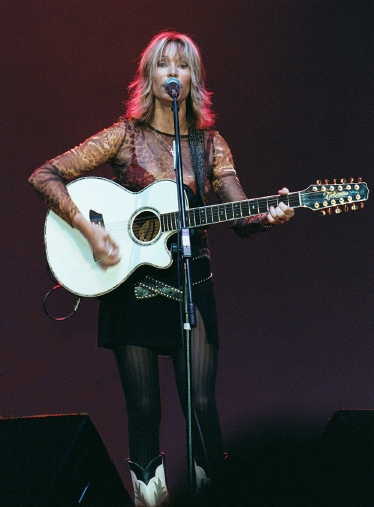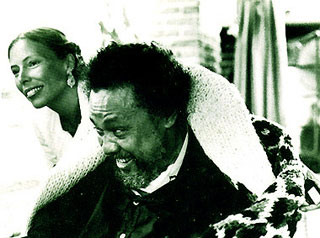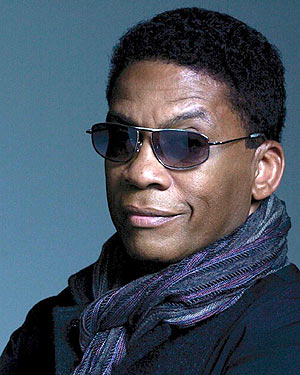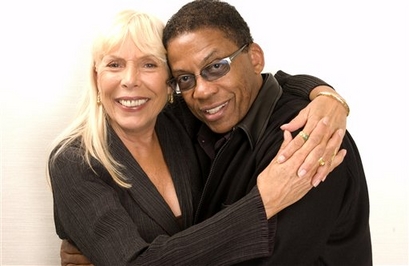JONI MITCHELL / “Dreamland”
Before I get to the Joni Mitchell song I really want to talk about, 1977’s “Dreamland,” I have to make mention of one of Joni’s older, more famous songs. “A Case Of You” is the type of record that usually comes to mind when you hear Joni’s name. It’s a somber yet playful folk-pop record made up of little more than Joni’s voice and her acoustic guitar. For those not listening closely, the song—and a lot of Joni’s material of the time—might be written off as mere pleasant-sounding diversions. But pay a little attention and you’ll find there’s a lot more in there to contend with – for starters, Joni’s acidic wit and intelligence. (In response to a lover’s supposedly deep come on line she says, “If you want me, I’ll be in the bar.”)
“A Case Of You” is from Joni’s 1971 album Blue and even though her exploration with jazz was still years away, I think she was listening to jazz records even then. Listen to the brief thrill ride spin she puts on the phrase ‘you’re in my blood like holy wine,’ shifting easily between her normal voicing, a bittersweet falsetto and then back again. That’s not gospel phrasing or soul phrasing and it sure ain’t folk or rock. That’s jazz. Or at least, jazz-inspired.
 Five years after Blue, Joni’s on-again off-again flirtation with jazz finally blossomed into an all-out affair. It wasn’t a one-way thing either. With four consecutive jazz-based albums, it was obvious Joni had fallen hard for the music, but it was just as obvious the music was digging her too. She filled her band with some of the best players (mostly Weather Reporters like Jaco Pastorius, Wayne Shorter and Airto Moreira) and co-wrote tunes with one of the best composers (Charles Mingus).
And it wasn’t just jazz. Joni began to explore other styles of black music. Our feature track, “Dreamland” (from 1977’s Don Juan’s Reckless Daughter) is a lush and organic Brazilian groove kind of thing that is miles and miles away from her original acoustic folk sound. One reason “Dreamland” works so well is Joni left the rhythm in the capable hands of professionals. There’s Peruvian percussionist Alex Acuña playing the shakers, the aforementioned Airto on surdo (a type of Brazilian snare drum), Don Alias on snares and blocks and Puerto Rico’s Manolo Badrena on congas.
“It’s a long long way from Canada,” the song begins, “it” being the island paradise Joni and her man are heading for. But once they get there, Joni finds it hard to shake off the knowledge that the only reason she and her man can laze around in these sands is because, centuries earlier, “Walter Raleigh and Chris Columbus [came] marching out of the waves.” Along the way, it’s as if Joni and the song itself begin to get confused about where this ‘dreamland’ actually is. Is it the perpetual sun, spicy food and cheap goods of the Caribbean? Or is it the clean streets, manicured lawns and stable governments of Canada and America?
Five years after Blue, Joni’s on-again off-again flirtation with jazz finally blossomed into an all-out affair. It wasn’t a one-way thing either. With four consecutive jazz-based albums, it was obvious Joni had fallen hard for the music, but it was just as obvious the music was digging her too. She filled her band with some of the best players (mostly Weather Reporters like Jaco Pastorius, Wayne Shorter and Airto Moreira) and co-wrote tunes with one of the best composers (Charles Mingus).
And it wasn’t just jazz. Joni began to explore other styles of black music. Our feature track, “Dreamland” (from 1977’s Don Juan’s Reckless Daughter) is a lush and organic Brazilian groove kind of thing that is miles and miles away from her original acoustic folk sound. One reason “Dreamland” works so well is Joni left the rhythm in the capable hands of professionals. There’s Peruvian percussionist Alex Acuña playing the shakers, the aforementioned Airto on surdo (a type of Brazilian snare drum), Don Alias on snares and blocks and Puerto Rico’s Manolo Badrena on congas.
“It’s a long long way from Canada,” the song begins, “it” being the island paradise Joni and her man are heading for. But once they get there, Joni finds it hard to shake off the knowledge that the only reason she and her man can laze around in these sands is because, centuries earlier, “Walter Raleigh and Chris Columbus [came] marching out of the waves.” Along the way, it’s as if Joni and the song itself begin to get confused about where this ‘dreamland’ actually is. Is it the perpetual sun, spicy food and cheap goods of the Caribbean? Or is it the clean streets, manicured lawns and stable governments of Canada and America?
 Here’s the opening stanza:
Here’s the opening stanza:
It's a long long way from Canada A long way from snow chains Donkey vendors slicing coconut No parkas to their name Black babies covered in baking flour The cook's got a carnival song We're going to lay down some place shady With dreamland coming onSounds dreamy, sure. Sounds like paradise. Or at least, vacation. Unless you’re the donkey vendor who has to feed his entire family with the proceeds from those slices of coconut. Or you’re the cook who has to get by on whatever tips he collects for his tune. You don’t have to be white or privileged to feel what Joni’s talking about. I don’t doubt that I look a lot more like ol’ dude slicing the coconuts than I look like Joni, but I’ve been to Montego Bay and I’ve been to Gaudalupe, and I’ve sat there in my airplane seat heading back home to my air conditioning and well-stocked grocery store shelves and lights that always comes on when I want them to. Sitting in that airplane seat, it does get a little difficult to decide if dreamland is where you’re coming from or where you’re going.
 “The Dry Cleaner From Des Moines.” From 1980’s Shadows And Light. Kalamu’s favorite: the live version featuring a great sax solo from Wayne Shorter and a virtuoso turn from Joni on vocals. The melody is Mingus’.
—Mtume ya Salaam
“The Dry Cleaner From Des Moines.” From 1980’s Shadows And Light. Kalamu’s favorite: the live version featuring a great sax solo from Wayne Shorter and a virtuoso turn from Joni on vocals. The melody is Mingus’.
—Mtume ya Salaam
River songs
 Herbie Hancock walked off with two Grammys (Album of the Year & Best Contemporary Jazz album) for, River – The Joni Letters, a tribute album to Joni Mitchell. It was a significant achievement. The album reminds me of some of the early work on Blue Note, especially the Tony Williams-led jams, Spring and Lifetime. River has that open, exploratory element to it on one hand, but on the other hand it’s popish, almost smooth.
I won’t be listening to it much but there are some very interesting moments, most of them supplied by saxophonist Wayne Shorter. Three songs from the album are in the jukebox.
“Edith and the Kingpin” features Tina Turner turning in a nuanced reading of Mitchell’s quirky lyrics. Tina’s performance makes me wish for a whole album in this vein. Although I’ve mostly thought of her as a twist and shout type singer, obviously there is a whole lot more she can do, and do well.
“Both Sides Now” is an instrumental interpretation of a Mitchell composition. Shorter really shines on this one.
“Tea Leaf Prophecy” features the honoree, Joni Mitchell. She brings the whole nine to her performance. Almost makes me want to re-listen to her catalogue. She certainly has a fine eye for detail in her lyrics.
One thing that is apparent throughout both the Mitchell and the Hancock selections is the difference a good band makes. Even when I was not smitten by the composition, generally I dug what the band was doing.
Herbie Hancock walked off with two Grammys (Album of the Year & Best Contemporary Jazz album) for, River – The Joni Letters, a tribute album to Joni Mitchell. It was a significant achievement. The album reminds me of some of the early work on Blue Note, especially the Tony Williams-led jams, Spring and Lifetime. River has that open, exploratory element to it on one hand, but on the other hand it’s popish, almost smooth.
I won’t be listening to it much but there are some very interesting moments, most of them supplied by saxophonist Wayne Shorter. Three songs from the album are in the jukebox.
“Edith and the Kingpin” features Tina Turner turning in a nuanced reading of Mitchell’s quirky lyrics. Tina’s performance makes me wish for a whole album in this vein. Although I’ve mostly thought of her as a twist and shout type singer, obviously there is a whole lot more she can do, and do well.
“Both Sides Now” is an instrumental interpretation of a Mitchell composition. Shorter really shines on this one.
“Tea Leaf Prophecy” features the honoree, Joni Mitchell. She brings the whole nine to her performance. Almost makes me want to re-listen to her catalogue. She certainly has a fine eye for detail in her lyrics.
One thing that is apparent throughout both the Mitchell and the Hancock selections is the difference a good band makes. Even when I was not smitten by the composition, generally I dug what the band was doing.
 Now that I’ve listened to the selections a couple of times and given some thought to the situation, it’s apparent to me why Mitchell and Hancock got together. Joni Mitchell is a popular artist who is very interested in making jazz and Hancock is a jazz artist who is very, very interested in making pop. That there paths should cross and produce an album that garnered two Grammys seems almost a predestined musical encounter.
—Kalamu ya Salaam
Now that I’ve listened to the selections a couple of times and given some thought to the situation, it’s apparent to me why Mitchell and Hancock got together. Joni Mitchell is a popular artist who is very interested in making jazz and Hancock is a jazz artist who is very, very interested in making pop. That there paths should cross and produce an album that garnered two Grammys seems almost a predestined musical encounter.
—Kalamu ya Salaam
This entry was posted on Monday, March 3rd, 2008 at 1:44 am and is filed under Classic. You can follow any responses to this entry through the RSS 2.0 feed. You can leave a response, or trackback from your own site.
Leave a Reply
| top |